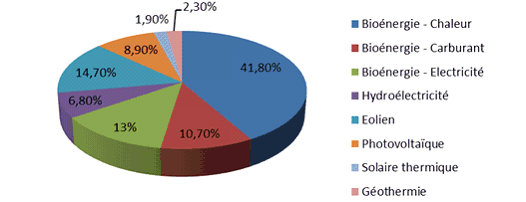In Germany, the highest court recently made a significant ruling by validating the use of *windfall profits* from renewable energy producers to help finance a cap on electricity prices. This verdict, awaited by many in the sector, strengthens the government measure put in place in response to the energy crisis caused by the conflict in Ukraine. The producers, feeling unjustly targeted, argued that their installations had not contributed to the rising energy costs. The Court, however, deemed this intervention necessary in the exceptional context of this energy crisis, thereby legitimizing the participation of these profits in the collective effort.
The German supreme court recently rejected an appeal from renewable energy producers contesting a government decision from 2022. This decision aimed to use their windfall profits to contribute to the financing of a price cap on electricity. The producers, particularly those generating wind, solar, and biomass energy, argued that managing the energy crisis, exacerbated by the Russian invasion of Ukraine, was the responsibility of the state. They claimed that their installations were not responsible for the surge in electricity prices. However, the court ruled that this measure was constitutional given the exceptional situation created by the energy crisis. The profits thus obtained were used to finance a mechanism to limit the cost of electricity for households and businesses.

the decision of the German supreme court
The German supreme court recently rejected the challenge from renewable energy producers regarding the use of their windfall profits. In response to the energy crisis caused by the Russian invasion of Ukraine, the German government adopted a measure aimed at using these profits to finance a cap on electricity prices. Energy producers, primarily those from the wind, solar, and biomass sector, argued that this decision should be funded through state taxes and not by taking from their profits. However, the court ruled that, under these particular circumstances, this measure was in accordance with the Constitution. Between December 2022 and June 2023, these profits were used to limit the cost of energy for households and businesses.
The court ruled that using excess profits to help finance the capping of electricity prices was constitutional in the exceptional situation engendered by the energy crisis. The structure of the electricity market had led to exceptionally high profits for certain renewable energy producers. This controversial decision is part of a set of measures designed to mitigate the effects of soaring gas prices and, consequently, overall energy costs. The producers involved believe that while their operations have benefited the environment, they did not directly contribute to the rise in electricity prices.
the implications for the renewable energy sector
This decision from the highest German court will have profound repercussions for the renewable energy sector in Germany. Producers are concerned about the potential impact on the future profitability of their operations, especially as the government seeks to meet ambitious targets for green energy. Meanwhile, industries that rely on fossil fuels view this initiative differently, seeing a level of competition that is more equitable. The debate on the best way to finance the energy transition remains open, with tax issues at the heart of this discussion.
a compromised future or a hidden opportunity?
Despite this setback, some experts see in this situation a disguised opportunity to accelerate the development of innovations in the field of renewable energy. Investments in advanced storage technologies and solutions to maximize the efficiency of installations could accelerate following this decision. This is a logic that could translate into a solidification of the role of renewable energies in Germany’s long-term energy mix. The question remains whether the renewable energy sector can quickly adapt to overcome these challenges and maximize the opportunities that arise, capitalizing on the need for an inevitable energy transition.
Articles similaires
Thank you!
We will contact you soon.














